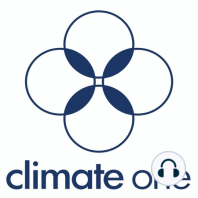71 min listen
Truckin' (10/5/11)
FromClimate One
ratings:
Length:
63 minutes
Released:
Oct 7, 2011
Format:
Podcast episode
Description
Truckin' John Boesel, CEO, CALSTART Mike Tunnell, Director, Environmental Affairs, American Trucking Associations Alan Niedzwiecki, CEO, Quantum Technologies In August, the Obama administration announced the first-ever fuel efficiency standards for heavy-duty trucks and buses. The three experts convened at this Climate One panel say that the trucking industry is ready to meet the new rules, which require semi-trucks to reduce fuel consumption and greenhouse gas emissions by 20% by 2018. “What’s exciting now is that we have some decent public policy in place,” says John Boesel, CEO, CALSTART. “The engineering talent that was dedicated to cleaning up the criteria emissions is going to be applied to helping reduce our dependence on oil and cut greenhouse gas emissions. I think we’re going to see a lot of innovation in this space.” The new rules “will encourage fleets over this short term to develop best-available technology that is there today. It won’t really be technology forcing,” he says. At the same time, he adds, fleets will be looking at alternative fuels, especially natural gas, when they make economic sense. Mike Tunnell, Director of Environmental Affairs, American Trucking Associations, agrees, pointing out that with diesel prices hovering in $3 to $4 gallon range, “fleets are beginning to look more, in America, at alternative fuels and natural gas in an effort to cut some of the fuel costs.” But, he cautions, there is a flip side: the upfront costs for equipment are higher, and fuel availability becomes a concern. Climate One’s Greg Dalton picks up on the supply worries later, asking if fleet operators are concerned energy firms might not meet California’s Low-Carbon Fuel Standard, which aims to reduce the carbon intensity of California’s transportation fuels by 10% by 2020. “There will be some concerns,” says John Boesel, “but this is a regulation that will encourage them to be more innovative and more creative than they have been in the past.” David Mazaika, Chief Operating Officer, Quantum Technologies, says that plenty of examples, including hybrid buses now in service, prove that the fuel standards can be met. “It certainly can be done; the industry just needs to focus on that. Now, with the new legislation, there are some targets out there that the industry can focus on and really strive to meet.” “The technology is out there to be able to support these types of levels,” he says. “It will be a wide spectrum – everything from aerodynamic improvements to hybrid-drive systems and different fuels.” This program was recorded in front of a live audience at The Commonwealth Club in San Francisco on October 5, 2011
Learn more about your ad choices. Visit megaphone.fm/adchoices
Learn more about your ad choices. Visit megaphone.fm/adchoices
Released:
Oct 7, 2011
Format:
Podcast episode
Titles in the series (100)
Alan Weisman, Author of "The World Without Us": In this 2007 program author Alan Weisman talks about his book titled The World Without Us which looks at how the world would change without a human presence. by Climate One
